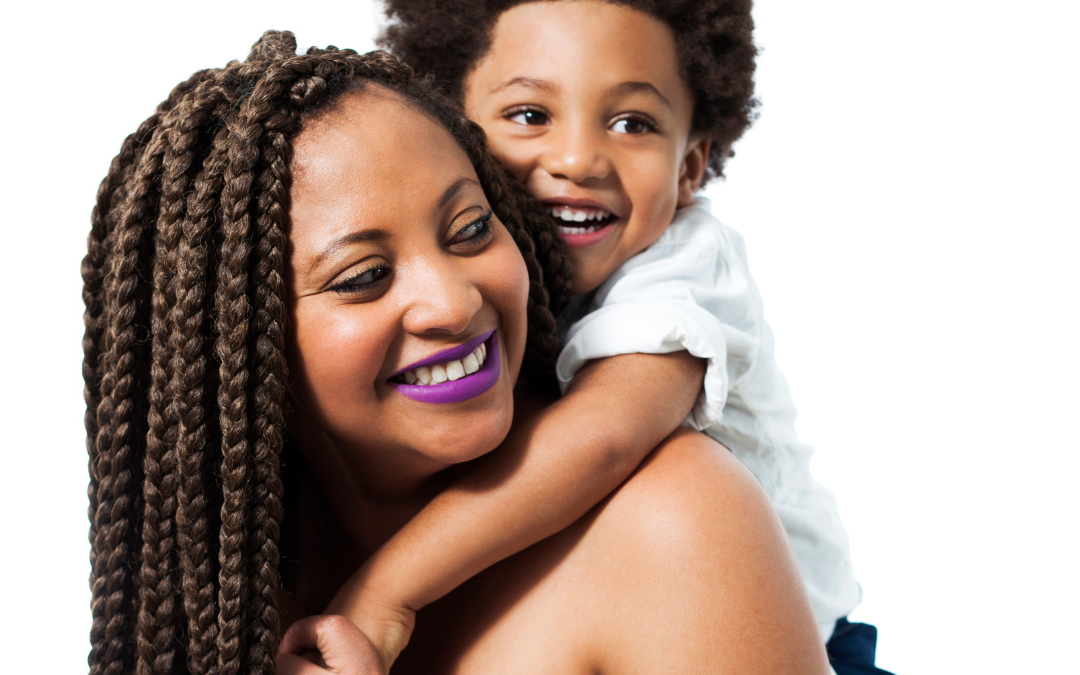Maternal mental health is important to me. I feel passionate about it, and if anyone ever asked me why, I could give a dozen reasons.
I could talk about the importance of mental health for Black women- the birthing people I’ve focused on.
Too often, the world expects us to be strong and stoic. It’s not only demanded of us, but we have bought into it as a survival tool. This dynamic of the strong Black women has led to a world where our pain is denied. Too many mothers have felt dismissed, with their needs during such a monumental transition being ignored.
I could talk about the fact that I think that so many of the women I’m surrounded by- type A, high achieving types- are just a little bit anxious as their baseline. Which is great! It gets things done! When you add a baby onto this though, things can get intense. Remove sleep, many of the outlets we use (like achievement at work)? It’s no wonder that our brains might go a little haywire.
I could talk about the clients and friends I’ve known who’ve struggled.
Women who’ve whispered to me about their fears for their baby. The women who’ve paced on their tippy toes around their kitchen islands, because they were vibrating with too much energy to walk flat footed. Or the women who want to rage well beyond what’s socially acceptable because they’ve found themselves infuriated by partners they love, and annoyed with the babies they cherish. Women who struggle to connect with their children, and feel absolutely disappointed and dejected that motherhood isn’t feeling how they expected, and how they think it should.
Or I could acknowledge the families still mourning losses- of previous pregnancies, of their own parents who should be grandparents, of a life before the trauma of their birth.
But I’d be telling only half the truth if I didn’t talk about my own mental health journey. The issue of maternal mental health feels deeply personal for me.
I consider myself fairly accomplished. I have a business that I love, that provides work for other people (and we did it through a pandemic!) And even outside of achievement-based standards- I have loving friends and family, I think my presence in the world matters, and I have so many reasons to be joyful.
Yet and still, several times in my life I have come completely undone.
Sometimes, it’s like all the color has been sucked out of the world. What should be a rainbow is black and white. I can’t quite make myself care about much and end up going through the motions.
Other times, it’s like I’m out to sea, trying to walk into the shore. I can see the people on the beach- strolling, frolicing, building sand castles. I’m trying to get to them, but the waves are pulling at me further into the ocean. I can’t fight the tide, and I’m sinking and taking in mouthfuls of water. These are the times when I’ve ended up utterly exhausted, in physical pain and unable to cope. During the worst periods of depression, I’ve taken to my bed and refused to come out for days on end. Even worse are the times that I forget- I’ve lost days and weeks.
It’s hard to explain these times to people who are familiar with me at my best, or even when I’m working at a solid B. Over the years I’ve felt fear, shame and sometimes even disgust with myself.
I don’t love admitting this, but I’ve always been thankful that at the end of the day, the person who suffers most is me. If I lose work, eat crap and become a couch blob, or damage relationships with distance, it’s painful. I can bear those consequences though, since I created them.
As a Black woman, I’ve been socialized to bear a lot, as long as everyone else gets what they need. I have a lot of fear though, about not meeting other people’s needs in a moment of crisis. Actually, I think this drives a lot of the shame around maternal mental health struggles.
I can only imagine if I’d had children during my worst moments. Knowing my self-hating thoughts as I do, I’m pretty sure they would only have gotten louder. Maybe I would be spurred to action (often someone depending on me gets me out of bed). But my biggest fear is that they would not have.
So when I think about pregnancy and the fourth trimester for myself, there’s some apprehension mixed in with the excitement. I worry about what could happen in my brain and heart. And even more so, I worry about how I’ll live with myself if I struggle to be a present mother.
If another woman shared these thoughts with me, I know what I would say to her, what I’ve said to many women, in fact.
I would point out that many other share her fears. Studies show that more than 1 in 9 women experience postpartum mood and anxiety disorders, and Black women are more likely to experience maternal mental health issues, but less likely to report. So her makes sense.
I would also point out that while the worry may not be especially helpful, it shows that she’s aware. She knows that this is a concern, and based on how she’s handled much of her life, she’ll probably find ways to reduce the likelihood of the worst possible outcome.
Because I know that my worry presents an opportunity. I can build a life where I’m supported, and surrounded by people who don’t shame one another for needing help, or having feelings- even big scary ones.
I’ve already told my current partner that if/when we have kids, we’re going to need to look out for my mood and my brain. I already have a therapist (and know several great specialists for mothers), and I already know I’ll likely want a postpartum doula. I’m open to medication if my anxiety gets overwhelming or I find myself unable to get out of bed.
I’m in a unique position to take care of my hypothetical maternal mental health.
But even if you’re not a doula, I’m sharing this with the intent to let you know two things that I hope are calming:
- You are not alone. Good mothers, and good parents, sometimes struggle. The clients and friends I mentioned above? They love their kids.
- There are absolutely ways to cope and improve your mental health, whether it means getting more sleep and sunshine, professional support or a group, or medication.
Thankfully, we’re moving towards a world where Black women, all birthing persons and truly everyone can take care of our hearts and brains. I’m thankful that as a postpartum doula I can be a part of that. And as a human being, I’m grateful for the support I’ve gotten along the way. I hope you get what you need too.


